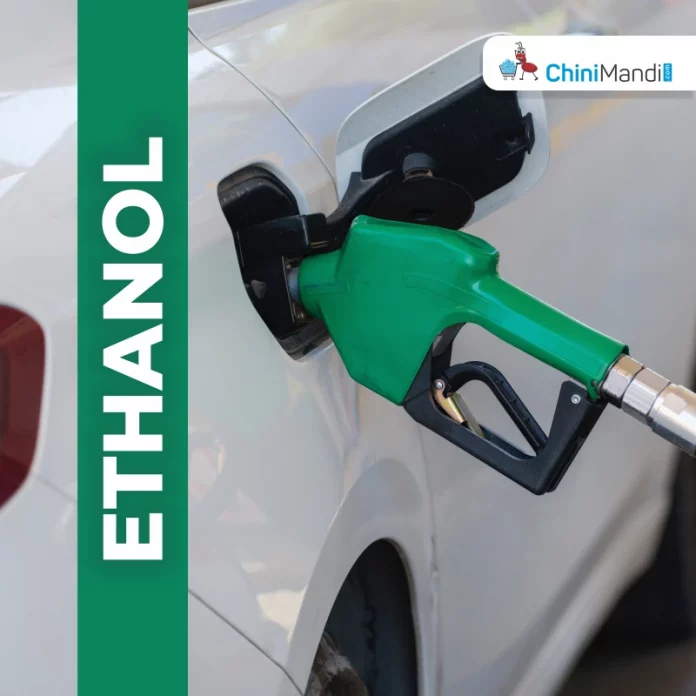The Indian sugar industry has shown a positive outlook towards increasing ethanol blending. According to the news report published in Business Standard, sugar millers in a recent presentation to the government have laid down an ambitious road map to achieve 50 per cent average ethanol blending with petrol by 2030.
The proposed plan includes an investment of ₹50,000 crores to expand distillery capacity. This will be over and above the already-lined-up amount of ₹15,000 crores, aimed at achieving a 20 per cent blending by 2025.
According to the plan, to achieve an annual nationwide average blend of 50% by 2030, a total of approximately 30 billion liters of ethanol supply will be required. Out of this, about 15-16 billion liters are expected to come from sugarcane-based molasses. The remaining portion is anticipated to be sourced from damaged grains, maize, and other sources.
As reported by The Business Standard, the Indian Sugar Mills Association (ISMA) has prepared a roadmap for achieving a 50% average ethanol blend by 2030. This roadmap was recently shared during a meeting with senior government and NITI Aayog officials.
The plan also encourages the extensive launch of E-100 Flex-Fuel Vehicles (FFVs), capable of running on ethanol-petrol blends ranging from 10% to 100% ethanol.
As per plan, it could significantly reduce petrol imports by domestically producing around 30 billion liters of ethanol. Such a reduction could result in saving nearly $15 billion in foreign exchange by 2030 and could boost farmers’ income by approximately ₹1.80 lakh crores.













Very Very India progressive suggestion to blend 50 per cent ethanol from 2030. It is kindly suggested to increase 30 per cent blend of ethanol from 2024 and then next step as per machineries requirment. The agricultural and other vehicles must run with 50 per cent blend from 2030 onwards. Ethanol, sugar cane must be produced in triple quantity in a near future by India and is most practical and economical. No more damaged grains ethanol production. No ethanol from maize grains. Excellent suggestion by ISMA.
Nice. Sugar Cane based ethanol is the best option ,in my opinion for local use and then export.Dr. Patil A.S.